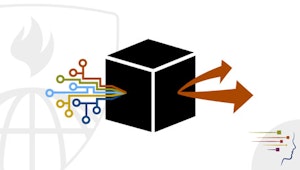My Learning Target in 2015
Facing the 2015 i have write the strategy to improve my knowledge and my softskill. Source to improve that is by using online course, study, and reading some book. For online course i’m using coursera (http://coursera.org) and Harvard Manage Mentor (Provided by my company for Internal Purpose Only).
In Coursera i have plan taking some course that interesting and same path as my interested here they are :
1. Mathematical Methods for Quantitative Finance


Provided by University of Washingthon, one of their departement called Applied Mathematics. Why i choose this topic ? Easy first i love math, and second i need to open my mind the application of math in real life such as economic, leadership, mortgate, loan, pricing formula, etc.
Currently i learn this course untile the week 1, and already finish the quiz. Although the score is not perfect, but my score is above the average. In first week you will learn about basic calculus such as diferentiation, Limit, chain rule, bond duration, Present Value, Derivatives, and L'Hopital. The istructor is Dr. Kjell Konis.


Provided by John Hopkins University this university is known as best leader in Biomedical Engineering. Why i choose this topics ? yeah my focus in this year is Machine Learning, they give complete competencies in DataScience start from learning the R, Getting and cleaning data, Statistical Inference.
I’m not start this course yet, currently i divided my time to divide my spare time to learn this awesome topics.
The instructors are Jeff Leek, PhD, Roger D Peng, PhD, Brian Caffo, PhD

![]()
This is second edition of Machine Learning course from Standford. Why i choose this but i already choose the Practical Machine Learning from JHU. the answer is they give different topic from the JHU. So i need 2 different perseption to compare them. But my confused in here to give my spare time because this 2 topic is start in next week and i’m afraid there is clash in the schedule.
About the Course
Machine learning is the science of getting computers to act without being explicitly programmed. In the past decade, machine learning has given us self-driving cars, practical speech recognition, effective web search, and a vastly improved understanding of the human genome. Machine learning is so pervasive today that you probably use it dozens of times a day without knowing it. Many researchers also think it is the best way to make progress towards human-level AI. In this class, you will learn about the most effective machine learning techniques, and gain practice implementing them and getting them to work for yourself. More importantly, you’ll learn about not only the theoretical underpinnings of learning, but also gain the practical know-how needed to quickly and powerfully apply these techniques to new problems. Finally, you’ll learn about some of Silicon Valley’s best practices in innovation as it pertains to machine learning and AI.
The instructor of this course is the founder of coursera and have Big Name Professor Andrew NG

![]()
This course is provided by one of favourite University for Business School in the world Wharton Business School University of Pennsylvania. Many great MBA is coming from this school. Why i choose this course ? this course will teach us how to implement game design technique to non-game context such as business, education, and social impact challenges. Yes, its like you work but there is a fun game inside of it.
About the Course
Gamification is the application of digital game design techniques to non-game contexts, such as business, education, and social impact challenges. Video games are the dominant entertainment form of modern times because they powerfully motivate behavior. Game mechanics can be applied outside the immersive environments of games themselves, to create engaging experiences as well as assign rewards and recognition.
Over the past few years, gamification adoption has skyrocketed. Companies use game thinking for employee motivation in human resources, team building, productivity enhancement, training, health and wellness, sustainability, and innovation. Marketers gamify their programs to engage customers. Organizations apply gamification to motivate crowdsourcing participants. Governments, non-profits, and educational institutions are also applying these techniques.
Game thinking means more than dropping in badges and leaderboards to make an activity fun or addicting. It requires a thoughtful understanding of motivational psychology and game design techniques, as well as a sensitivity to limits and dangers. This course teaches learners the foundations to make gamification effective in any context.
Instructor for this course is Kevin Werbach a leading expert on the legal, business, and public policy aspects of the Network Age. He is an Associate Professor of Legal Studies at The Wharton School, University of Pennsylvania, and the founder of Supernova Group, a technology consulting firm.
And how to handle this learning with my current study, work, and volunteer ? Yes this is the biggest challenge for me and this is one my part of the learning too. To focus and time management. So please cheers me, and hope my recommendation course is helping you too.
Cheers
